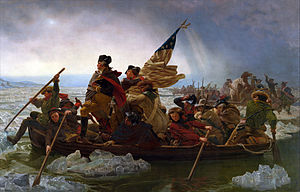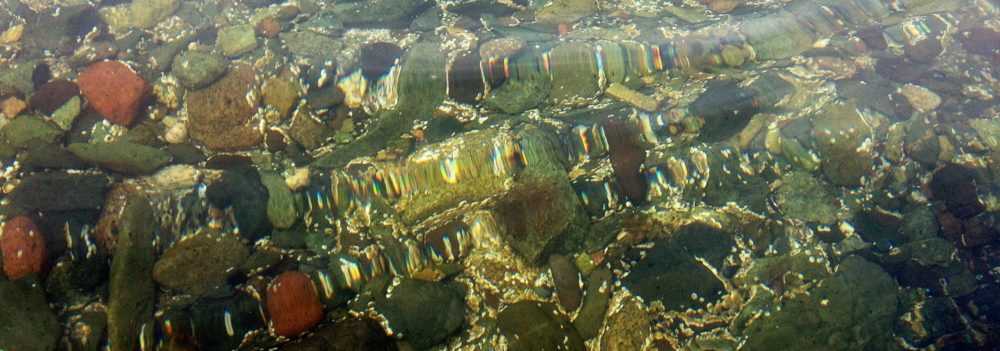
This is the famous painting of George Washington crossing the Delaware River to launch a sneak attack against the British in New Jersey. Although a great morale booster, it wasn’t an important battle. Yorktown, four years later, was the battle that ended the war and created America. It went like this. Britain ruled the sea, and she was able to use that advantage to move her armies around in America. One of these armies had been having a successful time ravaging the South, but it was time to move on, so the army assembled at Yorktown, Virginia to get picked up by His Majesty’s Navy. George Washington heard about this (on fb?) and hatched a plan. He’d march a French Army (which they’d loaned us) and the whole Continental Army from West Point to Yorktown (not easy). Meanwhile the French fleet would blockade Yorktown so the British could not escape by sea (very not easy.) He’d surround them and force them to surrender. There were several problems with this plan. The first was logistics. In the days before texting it would take weeks – sometimes months – for a message to get from the soon-to-be US to France which was where the French fleet and the French Army were getting their orders.
Imagine making a plan with the knowledge that it would be two months at least before your partners gave a yay or nay on it. From the French point of view, they would have to commit their fleet and Army for months and get orders out to them. The French fleet was in the Caribbean guarding her possessions there. While that fleet was away helping us, it was possible the British would show up and take over the French possessions. That kind of thing happened all the time. While they did serve their own purposes by sticking it to the British, they did so at considerable risk and expense. A large part of the cause of the French Revolution was France never recovered from the expense of helping us out. So you really have to hand it to the nascent American government and the French to pull this whole thing off at all. Moving all those ships and men across such vast expanses over such long timeframes with such slow communications was really nothing short of a miracle. The other problem was naval battles are not something the British tended to lose, and that’s where cooties come in. The commander of the British fleet on the North American station (with the amazing name of Mariot Arbuthnot) got sick and was recalled to Britain. His replacement was new on the job just when the French fleet showed up to blockade the British in the Chesapeake Bay. The two fleets slugged it out and the French Navy won, allowing George’s plan to succeed and America to be born. If the cooties had not intervened on Admiral Sir Mariot Arbuthnot, we might very well still be part of the British Empire. Between our wall and their Brexit, it’s hard to tell the difference.

The first recorded case of biological warfare was in the French and Indian War, where the British gave blankets infected with smallpox to warring tribes during a truce. It was highly effective.Estimates are that ninety percent of the native populations were wiped out in the New World due to disease, leaving it wide open for colonization.
Interesting research discussion on this subject here: http://bedside-rounds.org/episode-28-smallpox-blankets/